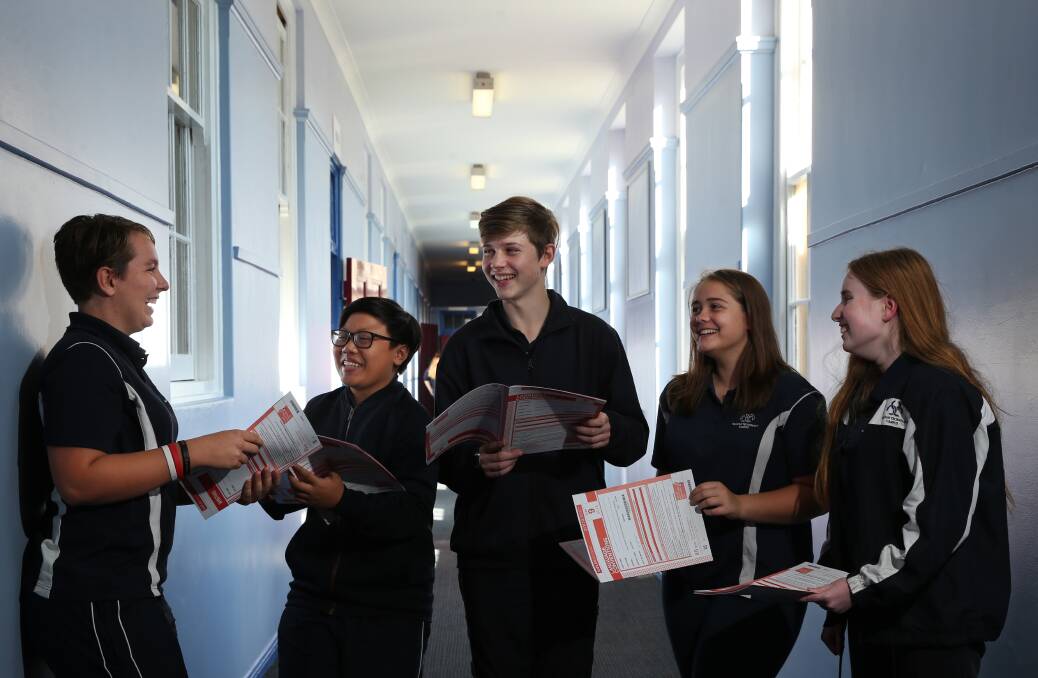
HUNTER students who are sitting NAPLAN for the last time say they are pleased to be leaving the controversial tests behind them, but grateful for the insights provided into their academic growth.
Subscribe now for unlimited access.
$0/
(min cost $0)
or signup to continue reading
Year nine Callaghan College Waratah students were among 32,338 years three, five, seven and nine Hunter and Central Coast pupils who sat the language conventions paper and the writing task on Tuesday.
“I’m pretty glad I’ve got it done,” Minh Pham, 14, said. “I tried my best, so I’m feeling pretty good.”
The students gave the language conventions paper that tested spelling, grammar and punctuation ratings of between six and eight out of 10, saying it was “reasonable” but got progressively harder.
They had varied opinions on the writing topic, but said they felt well prepared in terms of techniques to use in their response.
“When I write I either have good days when the ideas flow, or I get stuck – today was a good day,” Mitchell Moore, 14, said.
“The topic was relevant to me and I knew I had some good ideas about it.”
Matilda Newton, 13, said she was “relieved” to not have to sit NAPLAN again and had always looked forward to grades when she didn’t have to participate, “but it’s been good to see how I’ve improved over the years”.
“I’m glad to get it over and done with and leave it in the past, but the results have been helpful,” April Rodgers, 14, said.
Students will sit the reading paper on Wednesday and numeracy test on Thursday.
Principal Hayley Macdonald said the students sat four past papers last term to refamiliarise themselves with the test conditions and the classrooms in which they would sit NAPLAN.
“Our growth in writing has been enormous and that’s because most of our subjects have thought about the explicit teaching of writing and embedded that through content,” she said.
“So we’re not teaching to NAPLAN or preparing for the test, but preparing them with skills they will need to naturally perform their best in the test.”
Ms Macdonald said teachers tried to not misrepresent the importance of NAPLAN.
“It’s more for us,” she said.
“We do look at the data and use that data to inform where we head in the future, but it’s not an individual measure that they need to be worried about.
“It’s a point in time and the majority of information is useful to us, not them.”


